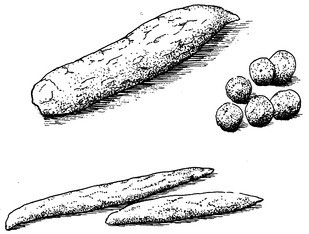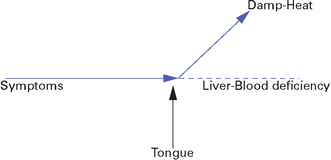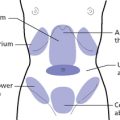 STOOLS AND URINE
STOOLS AND URINE
HOW WE ASK
When asking about urination and defecation it is important to be specific: asking “Are your bowels regular?” may elicit a positive response when the patient means that he or she evacuates the bowels once every 3 days regularly. Similarly, if we ask whether the urination is “frequent” (by which we mean “too frequent”) the patient might answer affirmatively when it is normal. We should therefore ask precisely how many times patients evacuate their bowels and how many times they urinate in a day (bearing in mind seasonal variations, as urination is generally less frequent in summertime).
STOOLS
Observation, Chapter 20; Hearing and Smelling, Chapter 54; Symptoms and Signs, Chapter 72
When asking about stools we should ask about the following aspects systematically:
Frequency
Spleen-Qi deficiency normally causes loose stools but in a few cases a severe Spleen-Qi deficiency may cause constipation because the deficient Spleen-Qi fails to move and transport. Constipation may also be caused by a so-called “shut-down” of the Qi mechanism; this happens when there is an impairment of the ascending and descending of Qi in the digestive system, which may be seen, for example, after surgery.
Alternation of constipation and loose stools indicates stagnant Liver-Qi invading the Spleen.
Box 31.1 summarizes patterns underlying constipation and increased frequency.
Consistency
The normal stool is well formed, not loose, not too dry and floating.
Case history 31.1 illustrates a pattern underlying diarrhoea.
Box 31.2 summarizes patterns underlying loose stools and diarrhoea.
Shape
Stools like small pellets indicate Liver-Qi stagnation, or Heat if they are also dry. Long and thin stools like pencils indicate Spleen-Qi deficiency (bear in mind that they could also indicate carcinoma of the bowel) (Fig. 31.1).
Colour
Black or very dark stools indicate Blood stasis. Bright-red blood coming before the stools and splashing in all directions indicates Damp-Heat in the Intestines. If the blood comes before the stools and is turbid and the anus feels heavy and painful, this indicates Blood-Heat. If the stools come before the blood and this is watery, it indicates that Spleen-Qi is deficient and is unable to hold Blood.
Box 31.3 summarizes the patterns underlying stool colours.
Odour and sounds
Hearing and Smelling, Chapters 53 and 54
Box 31.4 summarizes patterns underlying odour and sounds.
URINE
Observation, Chapter 20; Hearing and Smelling, Chapter 54; Symptoms and Signs, Chapter 73
With regard to urination we should ask about the following aspects systematically:




